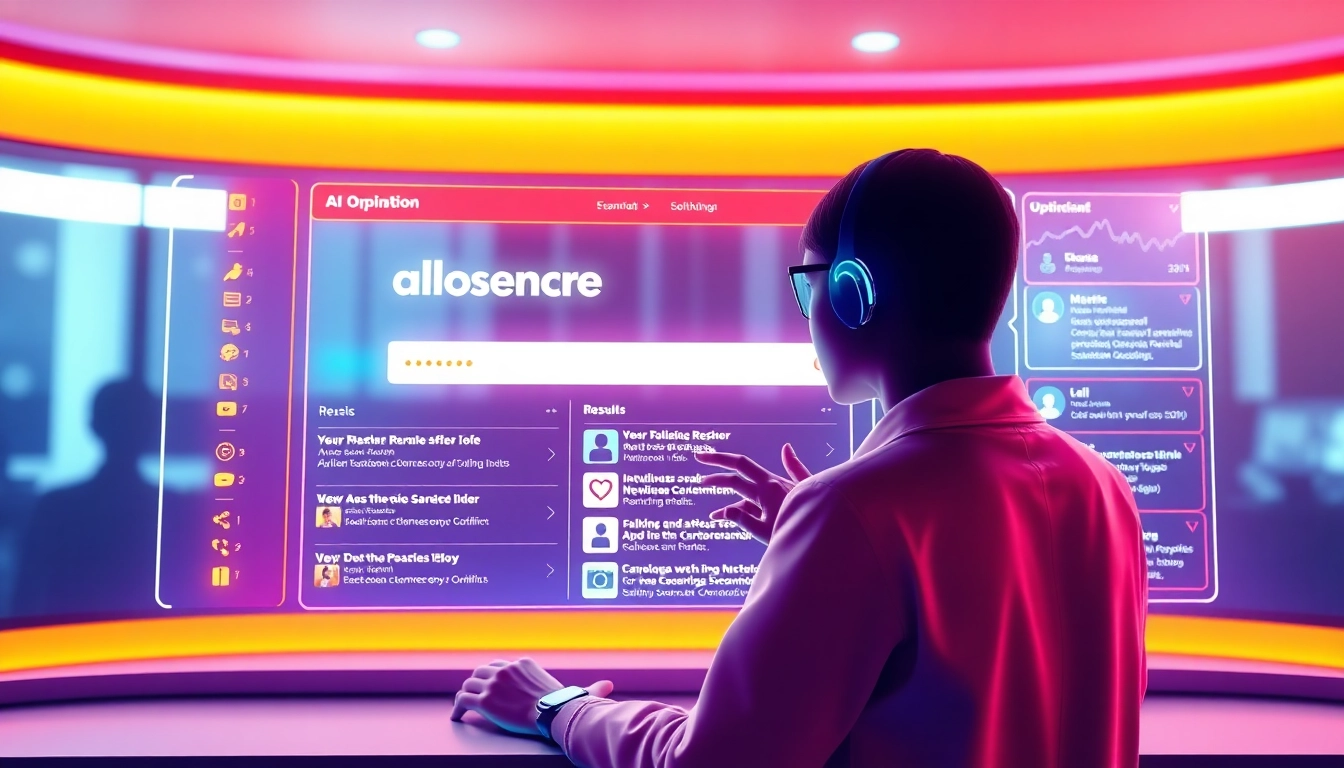Introduction to Digital Learning Resources
In a world increasingly driven by technology, the significance of digital learning resources has never been more pronounced. The shift towards online education is not merely a trend but a fundamental change in how knowledge is disseminated and acquired. As we navigate this shift, resources such as https://www.informaticsview.com emerge as vital platforms that cater to diverse learning needs, fostering an enriched educational landscape.
Understanding the Importance of Online Education
Online education provides unprecedented access to a plethora of information and learning materials, transcending geographical barriers. The flexibility of being able to learn at one’s own pace caters to a diverse range of learners, from full-time professionals seeking to upskill, to students who require supplemental resources. Furthermore, online education often allows for a more personalized learning experience, accommodating different learning styles and preferences.
Overview of Resources Offered by https://www.informaticsview.com
The platform offers a comprehensive suite of resources designed to enhance understanding and engagement in various fields. From scholarly articles and research papers to webinars and interactive tools, Informatics View presents a multifaceted approach to digital learning. This extensive catalog empowers learners to delve deeper into topics of interest, providing both theoretical knowledge and practical insights.
Target Audience and User Needs
The diversity of the content offered caters to a broad audience, including students, educators, and professionals in various industries. Users often seek high-quality, credible information to augment their learning, making it essential for platforms like Informatics View to address their specific needs effectively. Understanding these needs is critical to improving user experience and ensuring the content remains relevant and compelling.
Navigating Content Types
Understanding how to effectively navigate and utilize the different types of content available on platforms like Informatics View can greatly enhance the learning experience. Each type of resource serves specific purposes and caters to distinct learner objectives.
Exploring Articles and Research Papers on https://www.informaticsview.com
One of the cornerstones of any educational platform is its repository of articles and research papers. These documents not only provide foundational knowledge but also showcase contemporary studies and findings in various fields. For learners, this is an opportunity to engage with high-quality, peer-reviewed materials that contribute to a well-rounded understanding of their subject matter.
Utilizing Webinars and Online Workshops
Webinars and online workshops offer interactive learning experiences that can deepen understanding of complex topics. These sessions often feature industry experts who share insights, tools, and strategies. Participants can engage in real-time discussions, ask questions, and network with peers, creating a valuable learning community. For maximum benefit, users should be proactive in participating and absorbing the content shared.
Interactive Tools and Learning Aids
The incorporation of interactive tools and learning aids transforms the learning experience from passive to active engagement. These resources can include quizzes, simulations, and even gamified elements, which serve to reinforce learning through practice and application. By actively engaging with the content, learners are more likely to retain information and develop a deeper understanding of the subject matter.
Engagement Strategies for Effective Learning
Choosing the right resources is crucial, but how learners engage with these resources is equally important. Implementing effective engagement strategies can significantly enhance the learning experience on platforms like Informatics View.
Best Practices for Using Online Platforms
To maximize the benefits of online learning, users should adopt certain best practices. This includes setting specific goals for each learning session, creating a conducive learning environment, and regularly updating themselves on new content. Additionally, users should utilize features such as bookmarks and highlight tools to keep track of essential information.
Community Building and Peer Interaction
A learning community enriches the educational experience by providing support, motivation, and a platform for discussion. Engaging with peers through forums, discussion boards, or social media can foster collaboration and the sharing of ideas. This sense of community is critical in an online learning environment, where isolation can occur.
Feedback and Continuous Improvement
Feedback is an integral part of the learning process. Whether through self-assessments or peer reviews, receiving constructive criticism helps learners identify areas for improvement. Platforms that encourage user feedback not only enhance individual learning outcomes but also contribute to the continuous improvement of the resources offered.
Measuring Success and Effectiveness
To ensure that digital learning resources are having the desired impact, it is essential to measure success and effectiveness. This involves tracking various metrics that provide insight into learner engagement and outcomes.
Key Metrics for Evaluating Learning Outcomes
Key performance indicators (KPIs) such as completion rates, assessment scores, and learner satisfaction surveys can help evaluate the effectiveness of online learning. By analyzing these metrics, educators and content creators can identify what works, what doesn’t, and how resources can be improved to meet user needs more effectively.
Tools for Monitoring Engagement
Utilizing analytics tools can provide valuable insights into user behavior on learning platforms. Metrics such as time spent on content, interaction levels, and resource utilization rates allow educators and platform managers to gauge engagement and modify strategies accordingly. By leveraging these insights, platforms can personalize user experiences and deliver content that resonates with their audience.
Using Data to Enhance User Experience
Data-driven decision-making is essential in the realm of digital learning. By effectively harnessing user data, platforms can enhance user experience through tailored recommendations and intuitive navigation. This continuous improvement process leads to more engaging and user-friendly resources, benefitting both learners and educators alike.
Future Trends in Digital Learning
The landscape of digital learning is constantly evolving, influenced by technological advancements and changing user preferences. Staying ahead of these trends is crucial for educational platforms.
Emerging Technologies Impacting Education
Technologies like artificial intelligence, virtual reality, and augmented reality are set to revolutionize the educational landscape. AI can provide personalized learning experiences, while VR and AR offer immersive learning opportunities that can enhance understanding of complex concepts. Platforms must consider integrating these technologies to remain competitive and meet learner expectations.
Anticipating Changes in User Preferences
Understanding the evolving preferences of learners is key for platforms like Informatics View. As users become more tech-savvy, they increasingly seek interactive, engaging, and personalized educational experiences. Being responsive to these preferences and adapting content accordingly can significantly enhance user engagement and satisfaction.
Preparing for the Next Generation of Online Resources
The future of digital learning is not just about the technology used. It involves a holistic approach that integrates pedagogy, assessment, and community engagement into online resources. Platforms that can successfully blend these elements will likely lead the way in providing effective and valuable learning experiences for their users.



